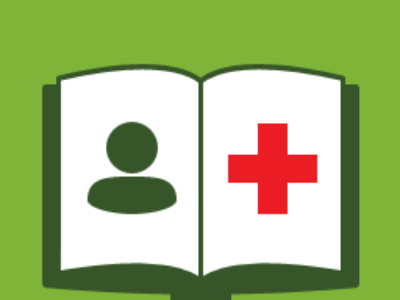My Health Guide Phase 1 Completion

Android, Apps, Health, iOS, Learning Disabilities, My Health Guide, NHS, SBRI, Software
 In October 2014 Maldaba won an SBRI Healthcare development contract. This was a 6-month Phase 1 feasibility project to produce a truly innovative technical solution for helping learning-disabled adults better manage their healthcare, be part of the decision-making process regarding their healthcare, and feel empowered that their views and wishes were taken into account by carers and health professionals.
In October 2014 Maldaba won an SBRI Healthcare development contract. This was a 6-month Phase 1 feasibility project to produce a truly innovative technical solution for helping learning-disabled adults better manage their healthcare, be part of the decision-making process regarding their healthcare, and feel empowered that their views and wishes were taken into account by carers and health professionals.
The project builds on earlier work commissioned by Humber NHS Trust in which a bespoke iBook Matthew’s Book was developed by adult social care specialist Ken Pugh for an individual user. This provided a comprehensive resource documenting the likes, dislikes, needs and challenges associated with caring for an individual with severe multiple physical and learning disabilities. Ken worked with Maldaba on the My Health Guide project to develop a tablet-optimised app for Android and iOS.
There were two questions to answer in Phase 1. Firstly, could we design and build something that would provide all the benefits of Matthew’s Book, but without the need for the technical skills and software that had gone into producing it? Secondly, having built something, would learning-disabled adults find it useful (and usable)?
Rather than an e-book, the conceptual model we used for the app were ‘boxes’, since this was a concept already familiar to our users, the notion of creating a box (or many boxes) within the app, and then storing pieces of information in each box (text, image, audio, video), was one that we felt could easily be conveyed to users.
Maldaba engaged with both healthcare professionals at Humber NHS Trust (our NHS partner on the project) and with learning-disabled adults through the branding, user interface, and functional testing phases of the build, to ensure that what we build was fit for purpose for the target demographic.
“The boxes are very easy to use and add information into… my ‘worries’ box and being able to add to it so easily has been the best thing for me.”
(Epilepsy and mental health sufferer).
The app also helps carers and health professionals, enabling them to better engage with learning-disabled adults, since they could more easily learn about each individual from the information in the app.
 Staff at Millers Day Service in Beverley, East Riding helped to test the app in Phase 1, and commented that it helped them engage with some service users more quickly, since those service users may be shy and slow to open up, but were excited by the app and were happy to engage by entering information into the app which staff could read and respond to.
Staff at Millers Day Service in Beverley, East Riding helped to test the app in Phase 1, and commented that it helped them engage with some service users more quickly, since those service users may be shy and slow to open up, but were excited by the app and were happy to engage by entering information into the app which staff could read and respond to.
It’s fair to say that the success of Phase 1 has surpassed Maldaba’s expectations. Visiting the centres during testing and listening to service users and staff feedback about the app was a humbling experience. Whilst it’s not uncommon for us to see the front-line impact of our software have such a strong effect on users, the nature of the demographic this time around means that My Health Guide really is improving the quality of people’s lives. You can read the original SBRI press release here for the 2014 award.
This work was commissioned and funded by NHS England. The views expressed in the publication are those of the author(s) and not necessarily that of the funding partners.


